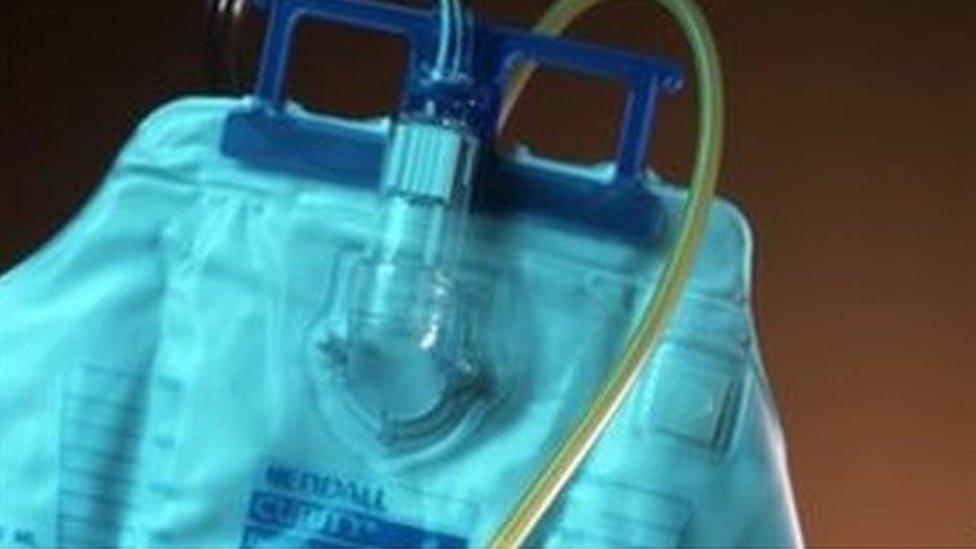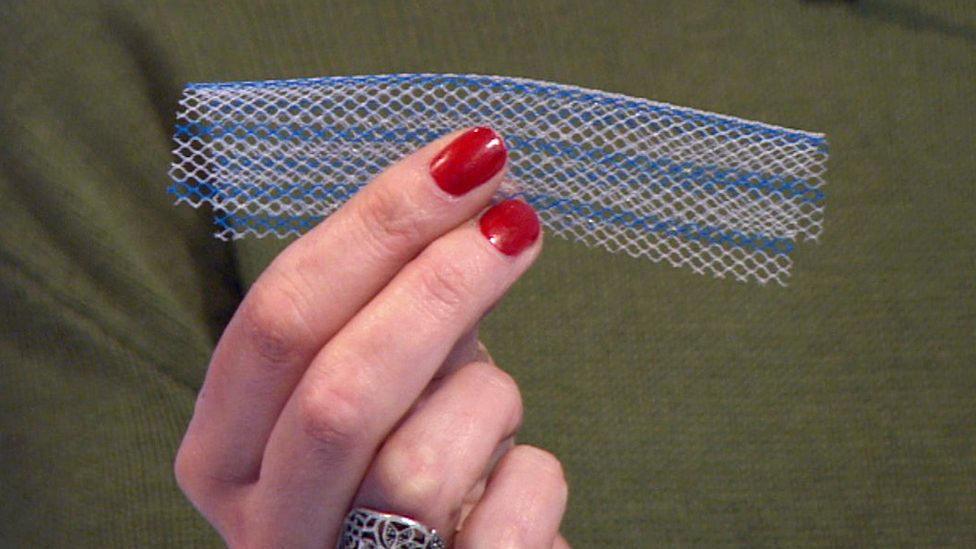TENA advert criticised for 'normalising' incontinence after childbirth
- Published
The advert criticised by nurses for "normalising" incontinence after childbirth
An advert for incontinence underwear has been reported to a watchdog for implying the condition is "normal and expected" after childbirth.
The Royal College of Nursing (RCN) criticised TENA for not highlighting to mothers that treatment for the condition is available.
TENA denied wrongdoing, but said it would amend its adverts.
The Advertising Standards Authority said the advert had not broken any rules, so it would not take action.
The advert for Tena Silhouette features a young mother - played by an actor - wearing the brand's black incontinence underwear, with her baby in a cot next to her.
The actor says: "I knew being a mum would have a few surprises... nobody mentioned incontinence though."
After pulling on her jeans, she adds: "A little bit of wee is not going to stop me being me."
In its letter to the watchdog, the RCN said: "Incontinence is known to be under reported due to the embarrassment experienced by women living with the condition.
"But the Tena Silhouette advert inaccurately portrays that it is normal to be incontinent post childbirth, providing no data to support the claim and with no acknowledgement that there is treatment available."
Public struggles
Some women may develop a leaky bladder during pregnancy and after giving birth, external.
Actor Kate Winslet and TV presenter Nadia Sawalha have both talked publicly about their struggles with incontinence after having children.
Sawalha told the Daily Mirror newspaper: "I've experienced incontinence ever since having my [two] children - and 90% of women I've met who've had a baby say the same."

Nadia Sawalha said she experienced incontinence after both her children were born
But the RCN said about 34% of women are living with urinary incontinence in the UK, and it can be treated with pelvic floor exercises or by having an operation., external
Amanda Cheesley, the college's professional lead for long term conditions, said: "It is acknowledged that [urinary incontinence] can impact on many other aspects of health and wellbeing, including mental health issues such as low self-esteem, depression and social isolation.
"Such adverts must do more to provide advice as to where people can get help, rather than inaccurately portraying it as an inevitable consequence of childbirth."

Kate Winslet also revealed on TV that she had the condition after childbirth
A TENA spokeswoman said the advert never referred to incontinence being "normal" after childbirth, but said: "It is a fact that millions of women experience urinary incontinence both during and after childbirth."
She added: "Our advertising directs women to visit our website where treatment advice is available and in addition, following feedback from healthcare professionals, we will be adding a line to our advertising advising women to seek healthcare advice if experiencing regular urinary leakage."
An ASA spokesman said the advert did not "explicitly claim that incontinence is an inevitable part of childbirth", but instead it had used it "as an example of someone who is experiencing incontinence to promote a positive message".
- Published25 November 2018

- Published28 December 2015

- Published10 July 2018
